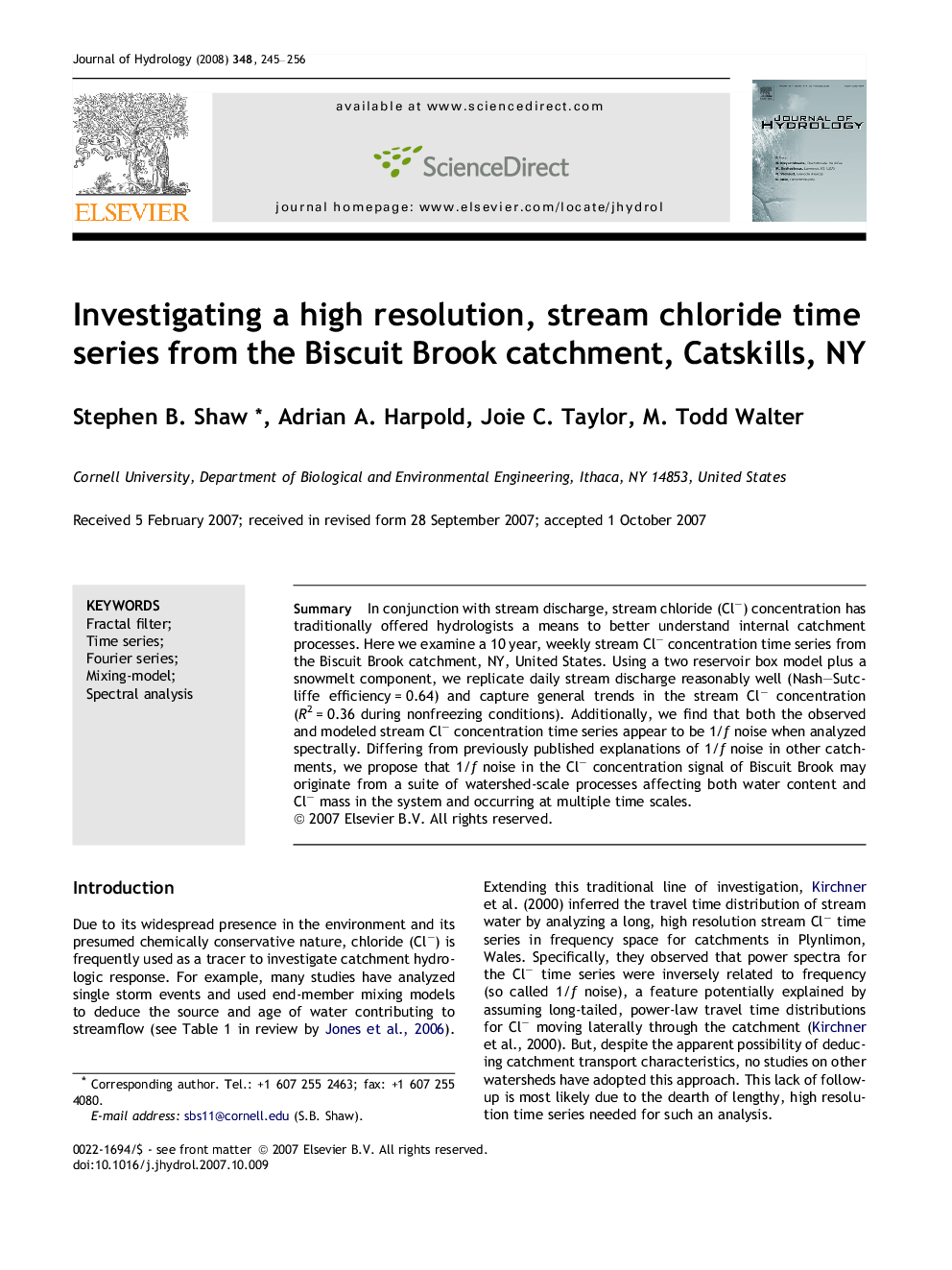| Article ID | Journal | Published Year | Pages | File Type |
|---|---|---|---|---|
| 4579695 | Journal of Hydrology | 2008 | 12 Pages |
Abstract
In conjunction with stream discharge, stream chloride (Clâ) concentration has traditionally offered hydrologists a means to better understand internal catchment processes. Here we examine a 10 year, weekly stream Clâ concentration time series from the Biscuit Brook catchment, NY, United States. Using a two reservoir box model plus a snowmelt component, we replicate daily stream discharge reasonably well (Nash-Sutcliffe efficiency = 0.64) and capture general trends in the stream Clâ concentration (R2 = 0.36 during nonfreezing conditions). Additionally, we find that both the observed and modeled stream Clâ concentration time series appear to be 1/f noise when analyzed spectrally. Differing from previously published explanations of 1/f noise in other catchments, we propose that 1/f noise in the Clâ concentration signal of Biscuit Brook may originate from a suite of watershed-scale processes affecting both water content and Clâ mass in the system and occurring at multiple time scales.
Related Topics
Physical Sciences and Engineering
Earth and Planetary Sciences
Earth-Surface Processes
Authors
Stephen B. Shaw, Adrian A. Harpold, Joie C. Taylor, M. Todd Walter,
